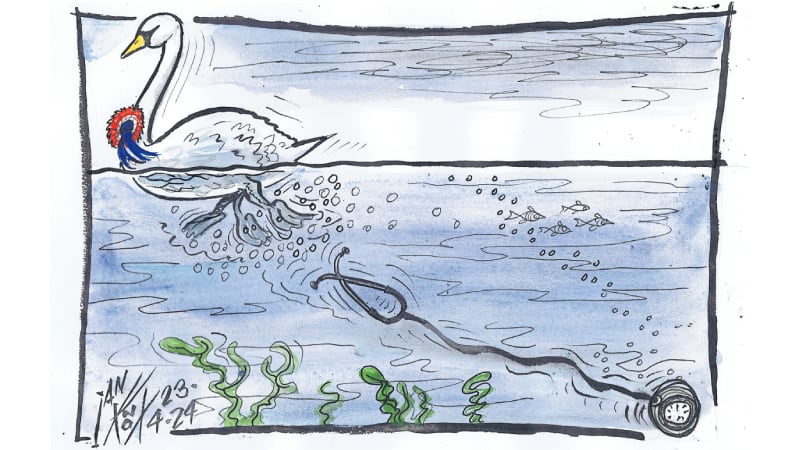Anne Cadwallader's book Lethal Allies: British Collusion in Ireland makes very uncomfortable reading; particularly her claim that "it can be demonstrated beyond a reasonable doubt that there was systemic collusion" and that members of the RUC and UDR were part of a loyalist gang that killed more than 100 people in one small area in the 1970s.
Unionists have reacted with predictable anger to the claims, accusing Cadwallader of 'blurring the lines between fact and fiction,' while ignoring the more important fact that it was the IRA which caused most of the deaths in the Troubles, as well as inflicting enormous economic damage with their bombing campaign. The overwhelming majority of unionists will never look at the book, let alone open it and too many will dismiss it because of Cadwallader's links with the Pat Finucane Centre.
That would be a mistake. The book deserves to be read. We need to understand our past, however unpleasant and uncomfortable the reading and discovery of it may be. But Sinn Fein needs to stop brandishing the book aloft like some sort of 'we-told-you-so-all-along' trophy, like it serves as some sort of justification and vindication for their own bloody campaign. It doesn't. The book isn't a definitive version of history and there are parts of it which resemble a joining-the-dots exercise.
Given the nature of terrorist and counter-terrorist campaigns it's not surprising that they often involve what is described as 'dirty war' tactics: they aren't conducted under the 'normal' rules of warfare, so it's almost inevitable that combatants will, quite literally, resort to the rules of the jungle and a dog-eat-dog approach.
But there is a bigger question at the heart of the Cadwallader book and it involves the issue of 'British policy' during the Troubles. The very title of the book - British Collusion in Ireland - suggests that the RUC, UDR elements involved with loyalist paramilitaries were not 'rogue' elements but were, instead, operating with the knowledge and approval of the very highest levels of British military intelligence and political command. I don't believe that. Yes, there is clear evidence to suggest that some members of the security forces crossed the line and brought shame to themselves and the uniform they wore, but I believe that any collusion was the collusion of rogue, criminal elements.
So, what was British policy? As far back as 1972 the Heath government introduced the concept of power-sharing, the 'Irish dimension' and the constitutional guarantee: and from that moment it seemed inevitable that any deal they would agree to (and hope that the Irish would underwrite with them) would be a deal that combined those three key elements. In other words, from almost the beginning - and certainly from that moment when the Stormont parliament was prorogued in March 1972 - successive British governments pursued an inclusive policy, a policy that would put all voices and vehicles at the heart of any new government.
I suspect that if the British had chosen to beat down the IRA in the 1970s they could probably have done so. But to what end? The organisation would almost certainly have re-emerged further down the line, forcing the British to impose yet another 'security solution.' What they seemed to want was a political/constitutional solution, one that would safeguard nationalists from one-party unionist rule, while ensuring that northern Ireland would remain within the United Kingdom until such times as a majority voted otherwise. In which case it was going to be a very long, very drawn out struggle until the point was reached at which unionists/ nationalists/loyalists/republicans (and the assorted paramilitary groups) realised that compromise, negotiation and agreement were the only viable options left to them. That point was finally reached about 20 years ago - following incidents like the Shankill bombing and Greysteel - when almost everyone accepted that there had to be another way of doing business here. What we have today, therefore, is the manifestation of a policy, a British policy no less, which has been floating around for almost 40 years. The constitutional integrity of the United Kingdom remains (and will continue to remain when Scotland rejects independence next year) as, bit by bit, the various parties to the quarrel here were brought round to accepting the reality and inevitability of that policy.
The problem, of course, is that the policy isn't the policy of unionists and republicans at all, which explains why they have so much difficulty in implementing it. The bedrock irony is that the various sides here have been quietly manipulated into colluding with each other to shore up an agreement which none of them actually wants.

